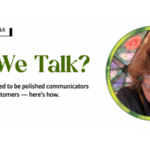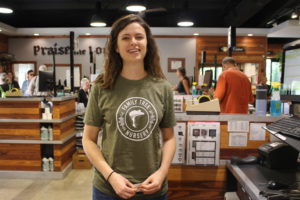
Your Brand, Your Identity
One of my all-time favorite authors was Theodor Seuss Geisel, more commonly known as Dr. Seuss; I avidly read his books as a young reader, then read them to my five younger siblings, my own three kids, and now to my five grandkids.
Maybe it was the rhyming, the cadence and the colorful illustrations that make the Dr. Seuss books so appealing. But now that I’m older, I can see some life lessons that Dr. Seuss was trying to deliver through his prose. One of my most enjoyable books was “Horton Hatches the Egg” (Random House, 1940) about an elephant, Horton, who was conned into hatching an egg. As Horton sits in the nest on top of a tree, he is exposed to the elements, laughed at by his jungle friends, captured by hunters, forced to endure a terrible sea voyage, and finally placed in a traveling circus where the egg hatched.
It’s a story about commitment and resilience, about persisting through challenges and obstacles. Numerous times throughout the story, others suggested that Horton abandon the task he had taken on, but he always responded with. “I meant what I said, and I said what I meant. An elephant’s faithful, one hundred per cent!”
Choice and Commitment
So, what, you might ask, does your business have in common with Horton? Simply stated, choice and commitment. Horton’s choices were much more limited than yours; he either had to decide to hatch the egg or not. But his level of commitment was tested much like yours is every day; in the face of all sorts of challenges and obstacles, Horton had to reaffirm the choice and commitment he initially made and, as the story tells, Horton was pig-committed to his task. (As an analogy, think about the commitment to supplying the ingredients to a ham and egg breakfast; the chicken is committed, but the pig, he’s REALLY committed!).
You make choices routinely every day, but some are more important than others. One of the most critical choices you must make is for you to define what your company stands for, what your values are, how you want to position your company to come to market and compete in a highly competitive arena; it’s an opportunity to really think about your company’s identity and raison d’etre for being. This process defines your brand, your identity to the customer.
And then the challenging work really begins, the execution and communication of the brand that is visible to your customer. You and your team must be pig-committed to ensuring that everything you do is consistent with your brand and brand message. And the consumer will be the ultimate judge as to whether they believe in your brand, if you’re true to your brand, if you have brand integrity, and if they can ascertain your commitment to your brand. If you pass their test, you reap the rewards; if not, well ….
For Example
It seems like everything in today’s world is viewed as polar extremes, be it business, politics, economics, societal issues or life in general. Business media, as an example, over-simplifies the choices companies make based on the extremes, on one end taking the price-focused position of “you’ll get a discount and you will get less than you paid for” to the polar opposite position of “you’ll pay more, and you’ll get more than you paid for.”
One end is measured by a single metric — price — while the other end is measured on multiple metrics, such as experience, quality, and service. It’s true that there are companies that live on either end of the spectrum, but there’s plenty of opportunity to stake a successful position between the polar extremes. Here are a few examples.
ALDI, the fastest-growing food retailer in the U.S., ranking No. 3 based on volume with 2,100 stores (and growing at the rate of 150-200 stores per year; ranks No. 4 in global food sales. They operate small, limited-assortment stores with a low cost/high quality platform (cut case displays, “rental” shopping carts, BYO bags, extremely low payroll (3-4 employees, all cross-trained and multi-tasking), small backrooms.
Very few national brands are carried, but quality is maintained through private label (national brand product with ALDI labels) and owned brands (ALDI maintains vertical control of sourcing, production and distribution). Prices are 30-50% lower than traditional supermarkets, yet high product quality is maintained. Shrink is controlled with rapid turnover, daily replenishment and limited backroom storage.
ALDI’s tagline is Shop differentli. Differentli, a verb meaning faster, easier and smarter way to save money on high-quality groceries and more. Combining a low-cost operational structure with a high-quality assortment is a unique niche position that most companies can’t match. And their commitment to protecting their brand integrity with private label and vertical sourcing and production displays pig-commitment to supporting their market position and brand.
It’s interesting to point out that, 10 years ago, ALDI catered to a low-income clientele with cash/check payment only; however, in the past few years, they’ve improved store lighting and other store cosmetics and added national credit cards as a payment option; now there are as many Mercedes and Land Rovers in the parking lot as beater cars, proving that higher-demographic consumers like high quality at a value price, too. (Disclaimer: I am a regular ALDI shopper.)
Consider AT&T Cellular. (For the record, AT&T has been my cell phone service provider since 1987.) AT&T had positioned itself as a premium cell phone service provider, developing and delivering innovative services and products. It offers excellent national coverage, supported with well-informed store and online associates who could professionally respond to questions and resolve problems — and they definitely charged for what they provided.
But because so many of us rely on mobile phones and phone services to manage our businesses, we were willing to pay the premium price for premium service. Further, when AT&T competitors offered special promotions to new customers (and not offering these same promotions to their existing customers), AT&T offered the same promotions to both new and existing customers, again setting them positively apart from their competitors.
And then AT&T changed their business platform from being a phone/communications company to being a media company, of which communications was just a part, and things began to change. For example, instead of offering promotions or discounts directly on phone products/services, they made these deals conditional upon buying their media products (i.e., DirecTV), which their customers weren’t always interested in. And as AT&T’s competitors consolidated, their combined services and coverage area became equal or superior to AT&T’s — and at cheaper prices. When I asked AT&T store and online reps to justify the price differences, and service, they provided meaningless, double-speak answers. And when I received an e-mailed promotion that directed me to go to a store to fulfill it, the local AT&T store staff told me that the plan didn’t apply to their store. When I asked to speak to the manager or supervisor for clarification, they deferred my request by saying no one in management was available that day.
AT&T’s premium brand and commitment level has been eroded by their lack of service and concern for their customers, and can no longer support their premium price position, especially as their competition has improved and expanded their products, services, and commitment to their current and future customers. It’s evident that AT&T has lost their respect for their customer and fail to appreciate a lifetime value relationship; they are about to lose a long-term loyal customer.
“I meant what I said, and I said what I meant. An elephant’s faithful, one hundred per cent!”, said Horton, in an illustrative statement that can be applied to explain how companies should position themselves — developing a strong brand story and then being pig-committed to consistently execute, support, and communicate it.
Your brand, your identity…


















 Videos
Videos





